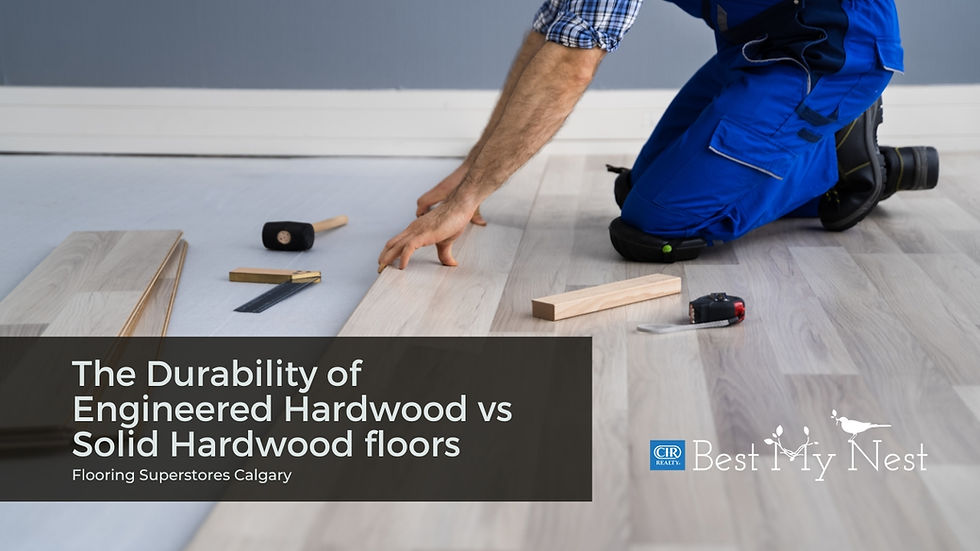The Durability of Engineered Hardwood vs Solid Hardwood floors
- cirmarketing
- Jul 4, 2023
- 2 min read

When it comes to choosing between engineered hardwood and solid hardwood floors, durability is a significant consideration. Both types of flooring are popular and have their unique features. Understanding the differences in durability is essential to help make an informed decision on the most suitable option for your home or office.
Durability:
Solid hardwood is made from a single piece of wood and is the most traditional form of hardwood flooring. It is generally thicker than engineered hardwood, typically ranging from 3/4 inch to 5/16 inch in thickness. Solid hardwood floors are durable and can last for generations if well-maintained. They are strong and resilient and can withstand heavy foot traffic without any signs of wear and tear.
Engineered hardwood, on the other hand, is made from several layers of wood, with the top layer being a veneer of hardwood. The layers are bonded together under heat and pressure to form a strong and durable plank. Engineered hardwood is thinner than solid hardwood, with the thickness ranging from 1/4 inch to 9/16 inch.
Although both types of hardwood floors are durable, there are differences in their ability to resist wear and tear. Solid hardwood floors are more prone to warping and cupping when exposed to changes in temperature and humidity. This is because solid hardwood is susceptible to expansion and contraction with changes in moisture content, leading to gaps and buckling.
Engineered hardwood floors are more stable than solid hardwood and can withstand fluctuations in temperature and humidity better. The multiple layers of engineered hardwood flooring make it more resistant to moisture and warping. It is an ideal option for installation in areas with high moisture levels such as basements and bathrooms.
Refinishing:
When it comes to refinishing, both solid and engineered hardwood floors can be sanded and refinished. However, solid hardwood floors can be sanded and refinished multiple times, making them a more long-lasting option.
Engineered hardwood, on the other hand, can only be sanded and refinished a few times before the top layer of hardwood is too thin.
Maintenance:
In terms of maintenance, both types of flooring require regular cleaning and maintenance to keep them looking their best. However, engineered hardwood is more resistant to scratches and dents, making it a better option for high-traffic areas.
In conclusion, both solid and engineered hardwood floors are durable and long-lasting options for flooring. Solid hardwood floors are thicker and can last for generations with proper maintenance, while engineered hardwood floors are more stable and resistant to moisture and warping. The choice between solid and engineered hardwood ultimately depends on personal preference, budget, and the environment in which the flooring will be installed.
Blog provided by Flooring Superstores Calgary
-----
Best My Nest is a free CIR REALTY program specifically designed to enhance your homeownership experience. Find out how you can save thousands of dollars a year on home improvement goods & services. Become a member today: https://www.bestmynest.com/become-a-member




Comments